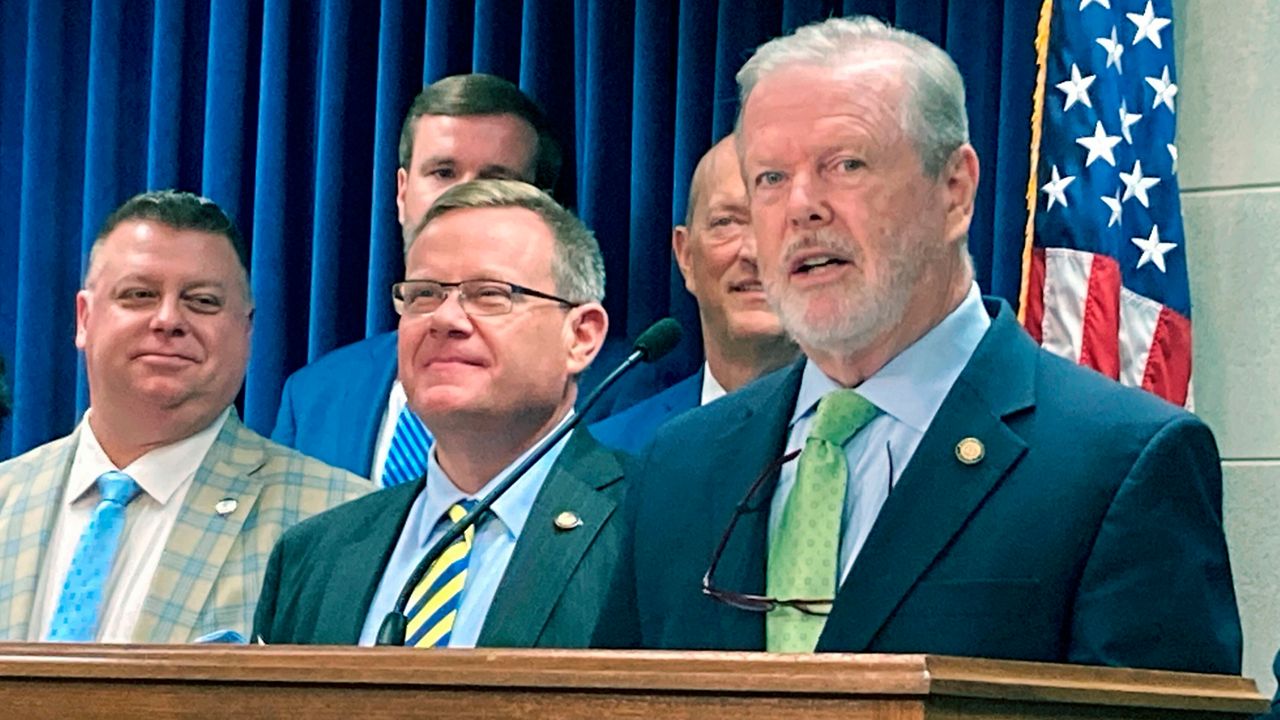Transgender people born in North Carolina may now correct the sex designation on their birth certificate without undergoing surgery after a consent judgment issued by a federal court, attorneys for the plaintiffs said Thursday.
“This is a victory for all transgender people born in North Carolina that will help enable them to navigate life with safety and dignity," Omar Gonzalez-Pagan, counsel at Lambda Legal, said in a news release.
North Carolina’s requirement that transgender people undergo sex reassignment surgery as part of establishing their identity was at the center of a lawsuit filed on behalf of an adult and two minors in U.S. Middle District Court in North Carolina in November.
Among the defendants named in the case was Kody Kinsley, secretary of the state Department of Health and Human Services. The department, which agreed to the consent judgment, didn't immediately respond to a request for comment Thursday.
A consent agreement is issued by a judge and is based on an agreement between the parties to a lawsuit to settle the issue. It's aimed at ending the litigation with an enforceable judgment. It is not construed as acknowledgment, admission or evidence of liability by the defendants, according to the document, and it cannot be used as evidence of liability in any current or future proceeding.
The lawsuit said adult plaintiff Lillith Campos is incorrectly identified on her birth certificate as male. It also said another plaintiff, a young man identified in the lawsuit as C.B., is incorrectly identified as female on his birth certificate while M.D., is a girl incorrectly identified on her birth certificate as male.
“I’m pleased to see this day happening, that the state of North Carolina now must recognize us for who we are," said Campos, a transgender woman born in North Carolina. “It was outrageous and dehumanizing that I was denied a birth certificate just because I didn’t have surgery.”
C.B., a 17-year-old, applauded the judgment, as did the mother of plaintiff M.D., the news release said.
“I’m glad that my daughter will be able to correct and align all her documentation that will allow her to avoid discrimination or exclusion at school, college, sports, or government agencies," the mother said. "No child or family should have to go through this trauma just because the government doesn’t want to recognize transgender people for who they are.”
Under the consent judgment, the state Department of Health and Human Services and other state government officials must provide accurate birth certificates that reflect an applicant’s sex, consistent with their gender identity, without having to undergo surgery, a news release said.
Specifically, a transgender person born in North Carolina may correct the sex designation on their birth certificate by submitting a sworn statement, accompanied by a passport, a state-issued identification, or certification issued by a licensed health care professional, social worker or case manager that confirms the person’s gender identity.
Information will be released later, when the new process takes effect, according to the news release.
Lambda Legal said it has successfully challenged restrictions on efforts by transgender people to obtain accurate birth certificates reflecting their identity in Idaho, Kansas, New York, Ohio and Puerto Rico. Challenges are pending Tennessee and Oklahoma, the legal group said.
Campos encountered employment discrimination, according to Gonzalez-Pagan. Her employer didn't provide coverage for gender-affirming care in the business’ health insurance plan, which prevented her from getting the surgery required by the state, he said.







)

